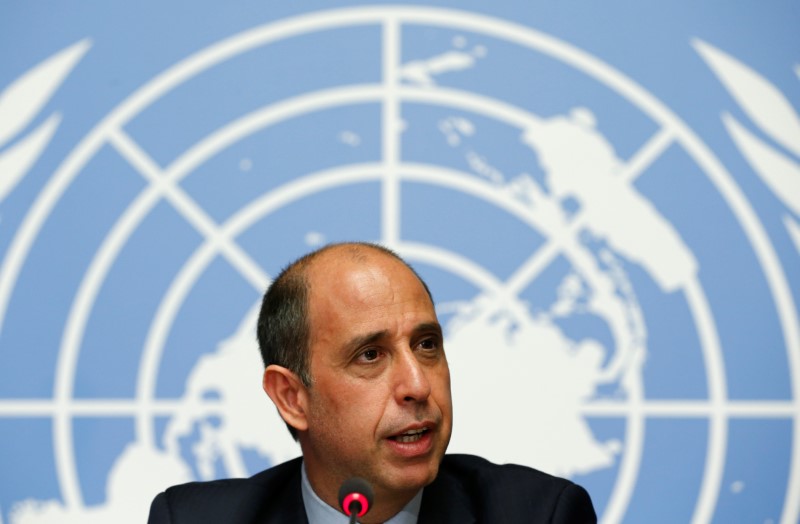By Stephanie Nebehay
GENEVA (Reuters) - Foreign detainees in North Korea are reportedly being denied due process in court and being held in inhumane conditions, a United Nations investigator said on Friday.
Tomas Ojea Quintana, U.N. special rapporteur for human rights in North Korea, also said that military threats being exchanged by Washington and Pyongyang were diverting attention from the needs of ordinary North Koreans.
He welcomed the release this week of Canadian pastor Hyeon Soo Lim on humanitarian grounds after serving more than two years of a sentence of hard labour for life on charges of plotting to overthrow the regime. Lim's family said on Thursday that he was not in critical condition.
But at least nine other foreigners -- three Americans and six citizens of South Korea -- remain in custody in North Korea, the U.N. expert said.
Otto Warmbier, a U.S. student held for 17 months after being sentenced to 15 years hard labour for trying to steal a propaganda item from his hotel, was released in a coma in June and died within days. The circumstances of his death remain unclear.
"I am concerned by reports that detainees are not receiving due legal process and are being held in inhumane conditions," Ojea Quintana said in a statement issued in Geneva.
North Korean authorities are obliged to provide foreign detainees with access to consular support and an interpreter, "but these entitlements cannot be taken for granted, based on the information I have been receiving”, he said.
The International Committee of the Red Cross (ICRC), which visits detainees worldwide, does not have access to political prison camps in North Korea, believed to hold some 100,000 people.
U.S. President Donald Trump issued a new threat to North Korea on Friday, saying American weapons were "locked and loaded" as Pyongyang accused him of driving the Korean Peninsula to the brink of nuclear war.
"These threats divert attention from the situation of ordinary North Koreans, whose subsistence and protection needs should be treated as an absolute priority," said Ojea Quintana, an Argentine lawyer who took up the independent U.N. post last year.
A 2014 U.N. report catalogued massive violations in North Korea -- including large prison camps, starvation and executions -- that it said should be brought to the International Criminal Court (ICC).

The landmark report, strongly rejected by Pyongyang, said North Korean leader Kim Jong Un might be personally responsible for crimes against humanity.